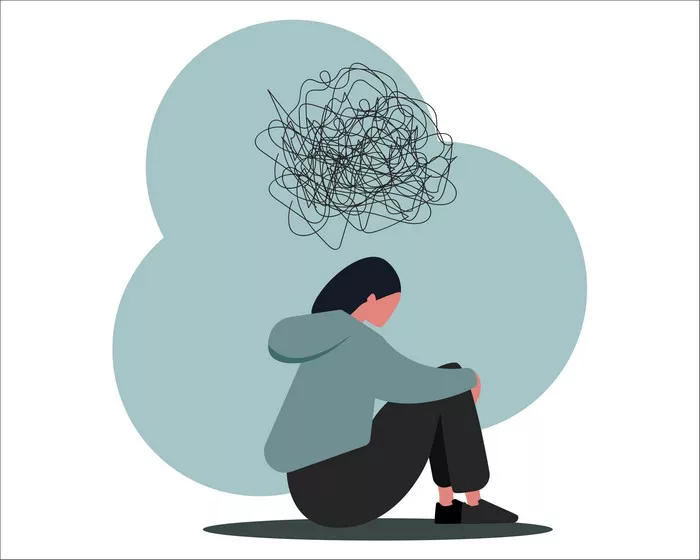Social anxiety disorder (SAD), also known as social phobia, is a prevalent mental health condition characterized by intense fear and avoidance of social situations. This fear can severely impact daily life, affecting one’s ability to work, maintain relationships, and engage in normal social activities. Recognizing and getting a formal diagnosis is a crucial step towards effective treatment and management of the disorder. This article will provide a detailed guide on how to recognize symptoms, seek professional help, understand the diagnostic process, and explore treatment options for social anxiety.
Understanding Social Anxiety Disorder
What is Social Anxiety Disorder?
Social anxiety disorder is marked by an excessive and irrational fear of social situations where one might be judged, embarrassed, or scrutinized by others. This fear can be so overwhelming that it interferes with daily activities and relationships. Common situations that might trigger social anxiety include public speaking, meeting new people, eating or drinking in front of others, and performing tasks under observation.
Symptoms of Social Anxiety Disorder
Identifying the symptoms of social anxiety is the first step towards seeking help. These symptoms can be categorized into emotional, physical, and behavioral symptoms:
Emotional Symptoms:
Intense fear of interacting or speaking with strangers
Worrying about embarrassing oneself in social situations
Fear of being judged or scrutinized
Avoidance of social activities
Physical Symptoms:
Blushing, sweating, or trembling
Rapid heart rate
Nausea or upset stomach
Dizziness or lightheadedness
Behavioral Symptoms:
Avoiding social situations or enduring them with extreme distress
Needing a companion to face social events
Over-preparing for social interactions
Excessive self-focus during social engagements
Impact on Daily Life
Social anxiety disorder can significantly impact various aspects of life, including professional performance, academic achievements, and personal relationships. Individuals may avoid career opportunities that require public speaking or social interactions, skip classes or social events, and struggle to form and maintain friendships or romantic relationships.
Recognizing the Need for a Diagnosis
Self-Assessment
Before seeking a professional diagnosis, a self-assessment can help determine if the symptoms are indicative of social anxiety disorder. Several online tools and questionnaires, such as the Social Anxiety Disorder Assessment (SADA) and the Liebowitz Social Anxiety Scale (LSAS), can provide preliminary insights into the severity of your condition.
Reflecting on Personal Experiences
Reflecting on personal experiences and identifying patterns of anxiety in social situations can provide valuable context when discussing symptoms with a healthcare professional. Consider keeping a journal to document instances of anxiety, including the situations that triggered it, the intensity of the anxiety, and how it affected your behavior and feelings.
Seeking Support from Others
Discussing your feelings and experiences with trusted friends or family members can offer support and encouragement. They might also provide additional insights into your behavior and help you recognize the need for professional evaluation.
Seeking Professional Help
Choosing the Right Healthcare Professional
Various mental health professionals can diagnose social anxiety disorder, including:
Primary Care Physicians: They can provide an initial evaluation and refer you to a specialist if needed.
Psychiatrists: Medical doctors specializing in mental health who can diagnose and prescribe medication.
Psychologists: Professionals trained in diagnosing and treating mental health disorders through therapy.
Licensed Therapists/Counselors: They provide therapy and can refer you to other specialists for a formal diagnosis.
Preparing for Your Appointment
Preparation can help ensure you communicate your symptoms effectively during your appointment. Consider the following steps:
Document Symptoms: Keep a detailed record of your symptoms, including their frequency, duration, and impact on your life. Note any specific social situations that trigger anxiety.
List Concerns: Write down any questions or concerns you have about your symptoms and potential treatments.
Medical History: Be prepared to discuss your medical history, including any past mental health issues and family history of mental health conditions.
The Diagnostic Process
The process of diagnosing social anxiety disorder typically involves:
Initial Consultation: The healthcare provider will ask about your symptoms, medical history, and any medications you are taking.
Clinical Interview: A thorough discussion about your symptoms, including when they started, how often they occur, and their impact on your life.
Questionnaires and Assessments: You may be asked to complete standardized questionnaires to assess the severity of your anxiety.
Diagnostic Criteria: The provider will use criteria from the Diagnostic and Statistical Manual of Mental Disorders (DSM-5) to determine if you meet the criteria for social anxiety disorder.
Post-Diagnosis Steps
Understanding Your Diagnosis
After receiving a diagnosis, it’s essential to understand what it entails. Your healthcare provider should explain the nature of social anxiety disorder, its symptoms, and the various treatment options available. Gaining a clear understanding of your condition can empower you to actively participate in your treatment plan.
Treatment Options
Treatment for social anxiety disorder often includes a combination of therapy, medication, and self-help strategies:
Cognitive Behavioral Therapy (CBT): A type of psychotherapy that helps you identify and change negative thought patterns and behaviors associated with anxiety.
Medication: Antidepressants, such as selective serotonin reuptake inhibitors (SSRIs), or anti-anxiety medications may be prescribed to help manage symptoms.
Exposure Therapy: Gradual exposure to feared social situations to reduce anxiety and build confidence.
Support Groups: Joining a support group can provide a sense of community and shared experience, which can be comforting and motivating.
Developing a Personalized Treatment Plan
Work with your healthcare provider to develop a treatment plan tailored to your specific needs. This plan may include:
Regular Therapy Sessions: Consistent appointments with a therapist or counselor.
Medication Management: If prescribed, regular follow-ups to monitor the effectiveness and adjust dosages if necessary.
Self-Help Strategies: Incorporate self-help techniques such as mindfulness, relaxation exercises, and positive self-talk into your daily routine.
Building a Support Network
Building a robust support network is crucial for managing social anxiety. This network can include:
Family and Friends: Educate them about your condition and how they can support you.
Support Groups: Join local or online support groups for people with social anxiety.
Therapist/Counselor: Regular sessions with a mental health professional can provide ongoing support and guidance.
Living with Social Anxiety Disorder
Managing social anxiety involves implementing daily strategies such as:
Mindfulness and Relaxation: Practice mindfulness meditation, deep breathing exercises, and progressive muscle relaxation to reduce anxiety.
Positive Self-Talk: Challenge negative thoughts and replace them with positive affirmations.
Gradual Exposure: Gradually expose yourself to feared social situations to build confidence and reduce anxiety.
Building Confidence and Social Skills
Improving social skills and building confidence can help manage social anxiety. Consider joining social skills training programs or engaging in activities that interest you to practice social interactions in a supportive environment.
Maintaining a Healthy Lifestyle
A healthy lifestyle can positively impact your mental health. Focus on:
Regular Exercise: Physical activity can reduce anxiety and improve mood.
Balanced Diet: Eating a healthy diet can support overall well-being.
Adequate Sleep: Ensure you get enough sleep to help manage stress and anxiety.
Conclusion
Getting diagnosed with social anxiety is a crucial step towards recovery and managing your condition effectively. By recognizing the symptoms, seeking professional help, and engaging with supportive communities, you can take control of your social anxiety and improve your quality of life. Remember, social anxiety disorder is a common and treatable condition, and seeking help is a courageous and essential step towards better mental health.
[inline_related_posts title=”You Might Be Interested In” title_align=”left” style=”list” number=”6″ align=”none” ids=”9126,9123,9037″ by=”categories” orderby=”rand” order=”DESC” hide_thumb=”no” thumb_right=”no” views=”no” date=”yes” grid_columns=”2″ post_type=”” tax=””]



































